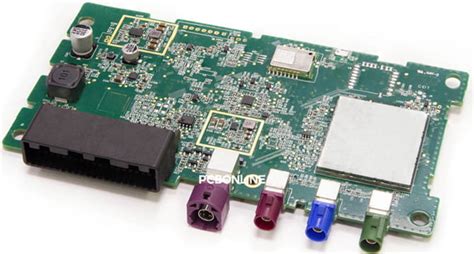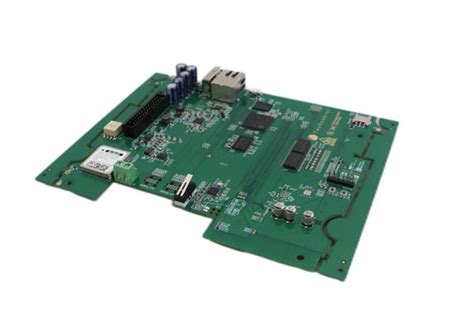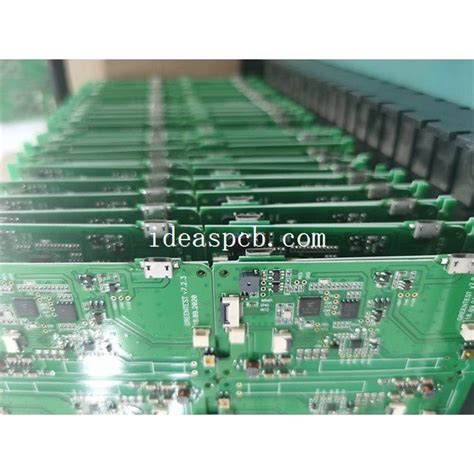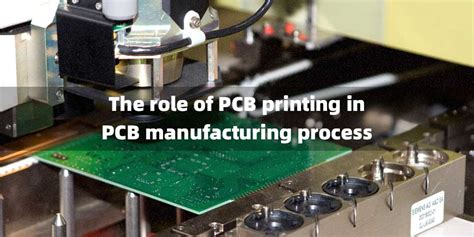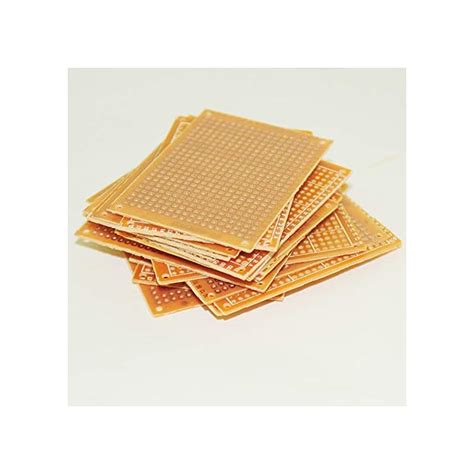Top Automotive PCB Manufacturers Driving Innovation in the Industry
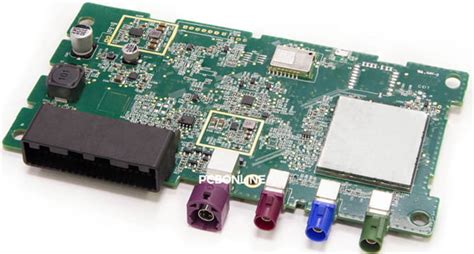
Key Takeaways
The automotive industry is constantly evolving, and automotive PCB manufacturers play a crucial role in this transformation. By focusing on pcb assembly and ensuring high-quality pcba, these manufacturers contribute significantly to vehicle performance and reliability. The integration of advanced technologies, such as flexible circuits and high-density interconnects, enables the creation of lighter and more efficient PCBs tailored for safety, connectivity, and energy management. Furthermore, innovation in PCB design is vital for accommodating the increasing demand for automotive electronics—especially in electric vehicles where traditional designs often fall short. Collaboration among leading manufacturers fosters breakthroughs in production techniques, enhancing the capabilities of automotive PCBs while meeting stringent industry standards. As sustainability becomes a paramount concern, many organizations are also integrating eco-friendly practices into their manufacturing processes, thereby contributing to a greener automotive landscape. The collective efforts of these key players not only propel innovation but also pave the way for the future of smart driving solutions.
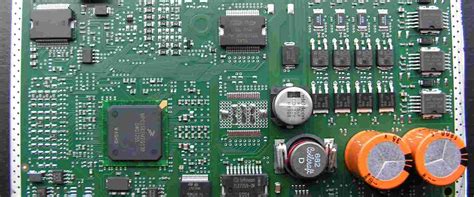
Introduction to Automotive PCBs: The Backbone of Modern Vehicles
In the rapidly advancing automotive industry, the importance of Printed Circuit Boards (PCBs) cannot be overstated. These essential components serve as the foundation for modern vehicle electronics, enabling everything from basic functions like lighting and infotainment systems to intricate safety features and electrical vehicle controls. Automotive PCBs are engineered to withstand harsh environments, demonstrating resilience against temperature fluctuations, vibrations, and moisture. As the industry moves towards greater integration of technology in vehicles, the demand for high-quality PCB assembly has surged. Leading automotive PCB manufacturers are innovating in this space by employing advanced materials and techniques to enhance durability and performance. This evolution is crucial as vehicles are becoming increasingly reliant on smart technology for improved driver experience and safety.
"The backbone of modern vehicles lies in their ability to seamlessly integrate technology through effective PCB design."
Therefore, exploring key players in the PCBA ecosystem reveals a focus on innovation that drives both efficiency and reliability in the automotive sector. As these manufacturers continue to refine their processes, they not only elevate vehicle performance but also contribute significantly to a more sustainable future for transportation.
Key Players in Automotive PCB Manufacturing
The automotive PCB industry is propelled by a range of key players that are instrumental in advancing technologies and enhancing the performance of modern vehicles. Leading manufacturers such as Jabil, Flex, and TTM Technologies have positioned themselves at the forefront through innovative pcb assembly solutions that meet the stringent demands of the automotive sector. Their capabilities in producing high-quality printed circuit boards (PCBs) not only ensure reliable performance but also contribute significantly to vehicle safety and functionality.
Many of these companies are investing heavily in research and development, allowing them to leverage cutting-edge technologies like advanced pcba (printed circuit board assembly) techniques, which integrate smart functionalities into vehicles. These innovations are crucial as they help address challenges like vehicle automation, enhanced connectivity, and energy efficiency.
Furthermore, collaboration between these manufacturers and automakers has become pivotal. As they work together to produce customized boards tailored to specific automotive applications, the impact on performance is profound. For instance, robust partnerships have led to breakthroughs in electric vehicle technologies, where lightweight and compact PCBs are essential for optimizing space and weight without compromising on power delivery.
| Company Name | Key Innovations | Market Focus |
|---|---|---|
| Jabil | Advanced high-density interconnects | Electric & Hybrid Vehicles |
| Flex | Flexible PCBs for modern designs | Autonomous Driving Solutions |
| TTM Technologies | High-performance multilayer boards | Safety-critical applications |
In summary, these key players not only dominate the market but also actively shape the future of automotive technology through their commitment to excellence in pcb assembly and forward-thinking approaches in manufacturing processes.
Cutting-Edge Technologies Shaping Automotive PCBs
Advancements in automotive PCB technology are dramatically transforming the landscape of vehicle performance and functionality. The integration of multilayer PCBs and advanced pcb assembly techniques is enabling manufacturers to design more compact and efficient circuit boards that can support a multitude of applications, from infotainment systems to advanced driver-assistance systems (ADAS). One significant innovation lies in the adoption of flexible and rigid-flexible PCBs, which provide unparalleled versatility and space-saving capabilities, making them indispensable for contemporary automotive designs. Moreover, manufacturers are increasingly utilizing high-frequency material and thermal management strategies within their designs to accommodate the growing demand for faster data processing speeds and enhanced reliability under varying temperature conditions. This evolution in pcba processes not only improves the overall performance of vehicles but also paves the way for future developments in electric vehicles (EVs) and autonomous driving technologies. By continuously embracing these cutting-edge innovations, automotive PCB manufacturers are not just keeping pace with industry trends but are actively shaping the future of mobility through enhanced technology integration.
Innovations in PCB Design for Enhanced Vehicle Performance
The automotive industry is witnessing a remarkable transformation, largely driven by advancements in PCB design. The integration of pcba—or printed circuit board assembly—into vehicle systems is revolutionizing functionality and efficiency. As vehicles become more sophisticated, manufacturers are increasingly turning to innovative PCB designs that promote lighter weight and reduced size without compromising performance.
Emerging technologies such as flexible PCBs and 3D PCB assemblies enable manufacturers to optimize space, leading to significant enhancements in vehicle aerodynamics and energy efficiency. The use of high-density interconnects allows for a greater number of components to be packed into smaller areas, thereby supporting complex functionalities such as advanced driver-assistance systems (ADAS) and infotainment systems.
Furthermore, manufacturers are exploring the potential of using a variety of materials to enhance thermal management within vehicles; this is particularly critical for high-performance electric vehicles that generate significant heat. In addition, the adoption of automated PCB assembly techniques not only speeds up production times but also ensures higher precision in soldering processes, reducing the risk of errors that could impact vehicle safety.
The convergence of innovative PCB design with cutting-edge electronics is paving the way for smarter, safer vehicles that meet the demands of modern consumers while also addressing sustainability concerns. By prioritizing these advancements, automotive pcb manufacturers are playing a vital role in shaping the future of transportation.
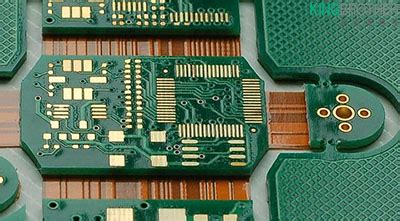
Sustainability Trends Among Automotive PCB Manufacturers
As the automotive industry increasingly focuses on sustainability, automotive PCB manufacturers are stepping up to meet this challenge by integrating eco-friendly practices into their production processes. Many of these leaders in PCB assembly are adopting recyclable materials and innovative manufacturing techniques that reduce waste and energy consumption. For instance, advancements in green soldering technologies not only minimize environmental impact but also enhance the overall quality of PCB assembly. Moreover, companies are prioritizing the development of lightweight, high-performance PCBs to improve vehicle efficiency, which directly correlates with lowered emissions and fuel consumption. By investing in research and development, these manufacturers are exploring alternative materials that offer durability without compromising on performance or sustainability. This commitment to sustainable practices is essential as the industry evolves towards more environmentally conscious solutions, ensuring that automotive PCBs remain vital components in achieving next-generation vehicle technologies. With ongoing innovations in the realm of PCBA, manufacturers are not only enhancing their product offerings but also contributing positively to the global call for a greener future in mobility.
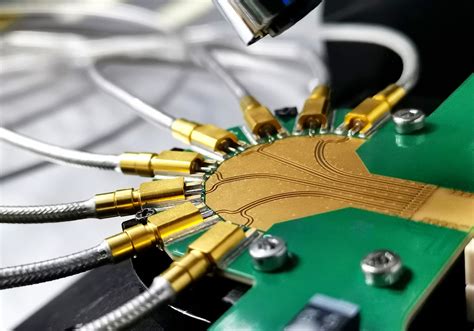
Case Studies: Successful Collaborations in the Automotive Industry
Collaboration among automotive companies and PCB assembly manufacturers has led to remarkable advancements in vehicle technology and performance. One notable partnership involved a leading automotive manufacturer working alongside a PCBA specialist to develop a state-of-the-art infotainment system. This project integrated cutting-edge pcb assembly techniques, resulting in a more reliable and efficient multimedia experience for drivers and passengers alike. The innovative designs not only enhanced user interfaces but also improved connectivity, enabling seamless integration with various smart devices.
Another successful collaboration saw an electric vehicle manufacturer teaming up with an established manufacturer known for its expertise in high-density interconnect (HDI) PCBs. By utilizing advanced materials and techniques, they successfully reduced the size of critical electronic components without compromising functionality or safety. This collaboration led to significant gains in energy efficiency and overall vehicle performance, showcasing how effective partnerships can propel the industry forward.
Moreover, the trend towards sustainability is being actively pursued through cooperative efforts between automotive companies and eco-conscious PCB manufacturers. These collaborations aim to develop green alternatives using recyclable materials and environmentally friendly manufacturing processes. By sharing knowledge and resources, these partnerships are crucial in tackling pressing environmental challenges while advancing the technology that powers modern vehicles.
Through these case studies, it becomes evident that strong collaboration between automotive giants and PCB assembly entities is an essential driver of innovation within the automotive landscape. Such successful ventures not only enhance vehicle performance but also pave the way for future advancements in this ever-evolving industry.
Future Trends and Challenges in Automotive PCB Manufacturing
The landscape of automotive PCB manufacturing is undergoing significant transformation, driven by rapid technological advancements and evolving consumer demands. Industry leaders are increasingly investing in innovative pcb assembly techniques, enabling the production of more compact and efficient designs that enhance overall vehicle performance. One of the critical future trends is the integration of smart technologies within PCBA processes, allowing for real-time diagnostics and improved functionality. However, this evolution also brings about challenges, such as the need for specialized skills in handling complex designs and maintaining stringent quality control standards. Additionally, as vehicles become more interconnected with the rise of electric vehicles (EVs) and autonomous systems, manufacturers will need to navigate new regulatory landscapes while ensuring their products remain competitive. As sustainability continues to be a pressing concern, automotive PCB manufacturers are also focusing on sourcing eco-friendly materials and optimizing their production processes to minimize environmental impact. This dual emphasis on innovation and sustainability will be crucial for thriving in an ever-changing market while addressing the nuanced demands of modern automotive applications.
Conclusion
As we conclude our exploration of the top automotive PCB manufacturers, it’s evident that these leaders are not only integral to the industry’s growth but also pivotal in driving innovation and enhancing vehicle performance. The advancements in pcb assembly techniques and the sophistication of pcba processes are fostering a new era of smart vehicles that rely heavily on advanced technology for functionality and efficiency. The commitment of these manufacturers to innovate in areas such as miniaturization, reliability, and thermal management is reshaping how vehicles operate, allowing for greater integration of electronics that improve safety, navigation, and entertainment systems. Furthermore, with growing emphasis on sustainability, these manufacturers are also leading the charge by adopting eco-friendly practices and materials in their production processes. This commitment to innovation and responsibility not only enhances the automotive landscape but also sets a benchmark for other industries to follow. As we look toward the future, the role of automotive PCBs will undoubtedly continue to be a driving force behind the evolution of transportation technology.
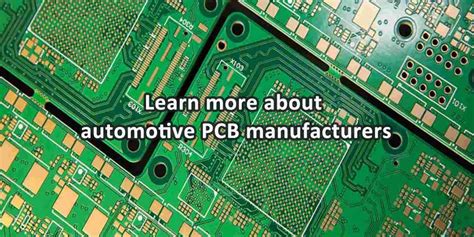
FAQs
What is the role of PCB assembly in the automotive industry?
PCB assembly (PCBA) plays a crucial role in the automotive industry as it allows for the integration of various electronic components into a compact and efficient unit. This assembly is vital for enhancing vehicle functionality, reliability, and safety.
How are automotive PCBs different from regular PCBs?
Automotive PCBs are specifically designed to withstand harsh environments and conditions found in vehicles. They often incorporate advanced materials and cutting-edge technologies to ensure durability under temperature fluctuations, vibrations, and exposure to moisture.
What advancements are driving innovation in automotive PCB manufacturing?
The automotive sector is witnessing innovations such as flexible PCBA, which allows for space-saving designs, and thermal management technologies that enhance performance. Additionally, the integration of smart technologies into PCBs facilitates features like real-time diagnostics and connected vehicle capabilities.
Why is sustainability important for automotive PCB manufacturers?
Sustainability is increasingly important as manufacturers strive to reduce their environmental impact. This includes using eco-friendly materials in PCB assembly, minimizing waste during production, and ensuring that end-of-life PCBs can be recycled or safely disposed of.
Can you give examples of successful collaborations among PCB manufacturers and automotive companies?
Many automakers partner with leading automotive PCB manufacturers to develop tailored solutions that optimize vehicle performance. For instance, collaborations focusing on electric vehicle technology have led to significant enhancements in battery management systems facilitated by advanced PCBA techniques.

